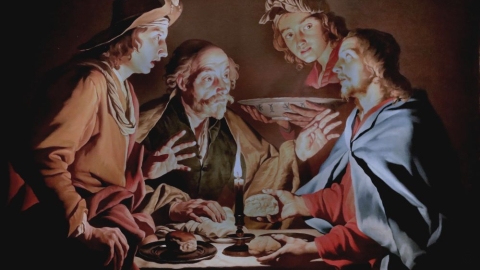Pope Francis Worries About Traditionalist Positions

Cardinal João Braz de Aviv
As the drift of the Church in Germany grows daily, and the laws against life grow ever wider, Pope Francis is concerned about the “traditionalist” training of priests. At least that is what Cardinal João Braz de Aviv, Prefect of the Congregation for Institutes of Consecrated Life and Societies of Apostolic Life, has stated.
Cardinal Braz de Aviv, speaking in a videoconference colloquium for the 50th National Week for Institutes of Consecrated Life, revealed that, during a recent meeting with Francis, Peter's successor expressed his fear of “a certain tendency to withdraw a little from the Second Vatican Council, by taking traditionalist positions.”
It is difficult to get a clear idea of what the Argentine pontiff meant with so little information. But it is already interesting to note that “to take traditionalist positions” is to “withdraw a little from the Second Vatican Council.”
This confidence, says the cardinal, was given within the larger framework of the training of priests. Thus, the Pope is worried that priestly formation is deviated, distorted, because “traditionalist positions” are taught to seminarians or young religious.
The cardinal also called on the consecrated to actualize the meaning of obedience, away from the abuse of power. We recognize there what the Pope calls the danger of “clericalism,” which can incidentally by his mouth concern not only clerics, but also the laity.
Considering the number of times this danger has been denounced by Francis, either this threat seems important to him or he has a particular abhorrence of it.
It is almost as if the ghost of Gambetta haunts the apostolic palaces. This politician had in fact launched a veritable war against religion, by pronouncing his famous “clericalism, here is the enemy,” on May 4, 1877, in the Chamber of Deputies.
If the abuse of power in the Church still remains to be deplored, denounced, and sanctioned, it should be remembered that “abuse does not remove use,” and that the pope and the bishops must above all encourage the holders of an authority to become holy, the only truly effective means of reducing abuses.
Unfortunately, it is not by tracking Tradition and “traditionalist positions” that this result will be obtained. But by focusing on the integral teaching of the faith, by training holy priests, and by re-establishing moral discipline, both for clerics and for the faithful. This is what all true reform in the Church has done.
(Sources : cath.ch/Vida Nueva digital – FSSPX.Actualités)
Illustration : alamy / Abacapress



